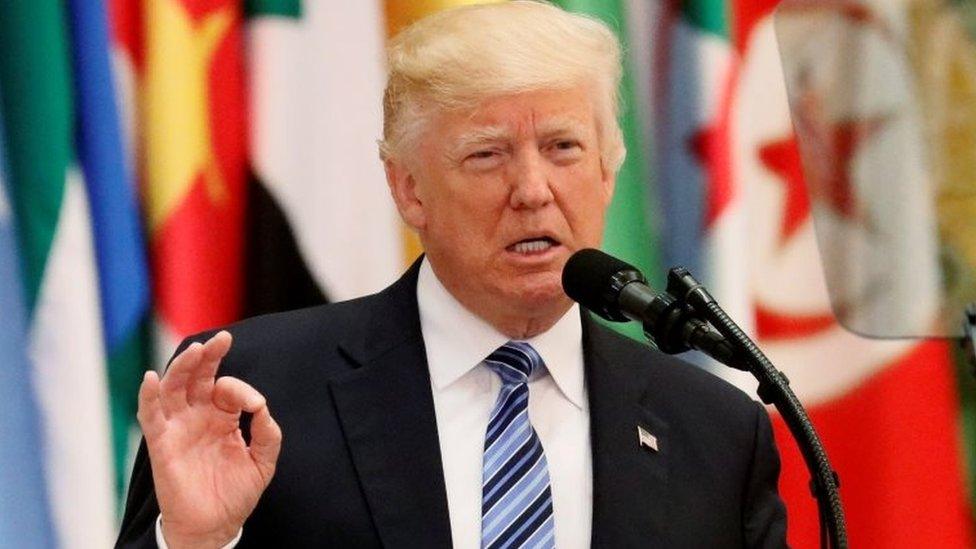Why has Trump been so harsh on Iran?
- Published
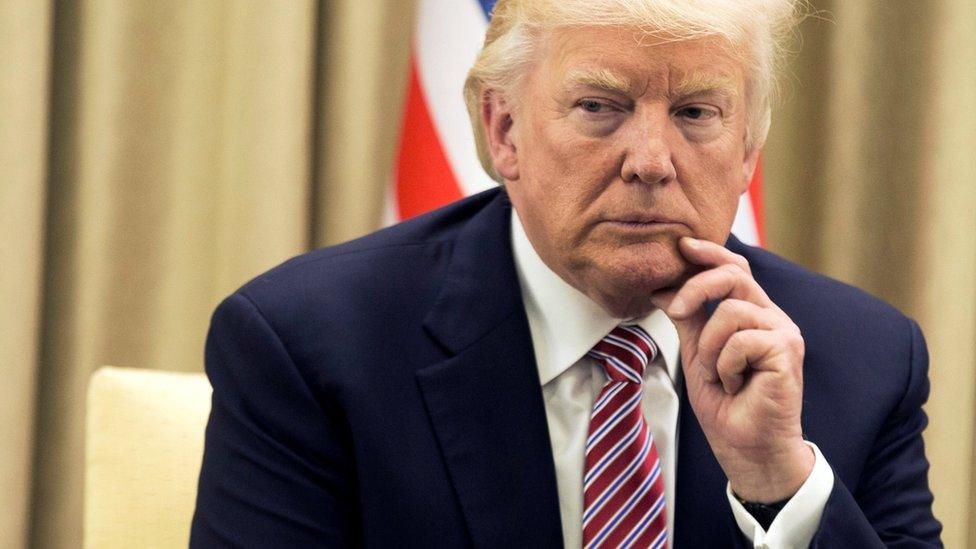
Mr Trump has repeatedly criticised Iran during his first foreign trip as president
This is President Donald Trump's first foray to the Middle East and it will not be his last. But he has already got one thing clear.
Antipathy towards Iran is the one thing that Washington's disparate allies in the region agree upon.
So bashing Tehran has been a prominent theme for Mr Trump both in Saudi Arabia and now in Israel.
Hostility to Iran is the glue that binds what some would like to believe is an emerging coalition between Israel, Saudi Arabia and the smaller Gulf States together.
But how far it really promises to shake up the sterile politics of the region is unclear.
A common purpose to contain Iran is one thing but can it really extend to bringing a new diplomatic dawn to the region?
For Mr Trump, criticising Tehran performs multiple functions. It allows him to sound tough on the world stage. Tougher than his predecessor, Barack Obama, who, he believes, signed one of the worst deals in history in reaching the nuclear accord with Iran.
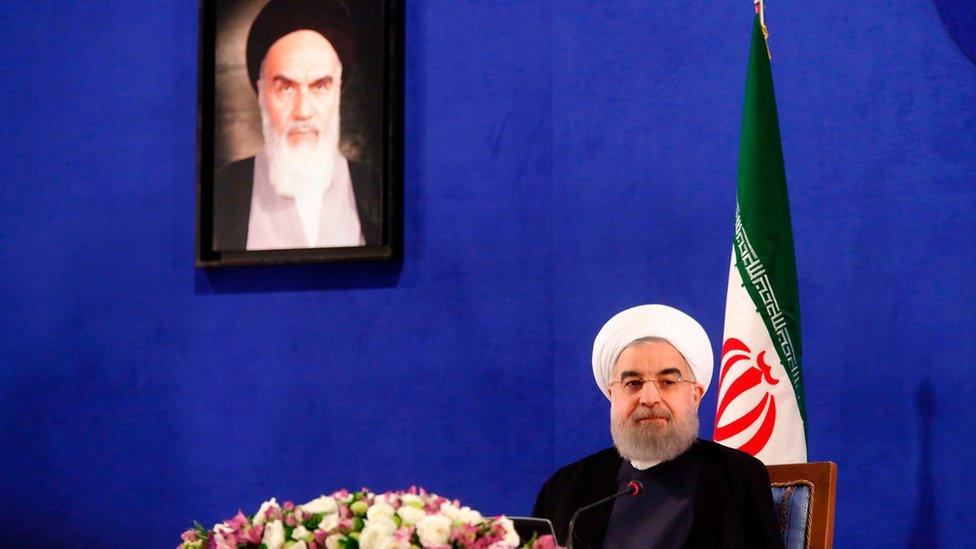
Hassan Rouhani, who reached a nuclear deal between Iran and world powers, has been re-elected as president
It enables him to reassure both the Gulf Arabs and Israel at one and the same time. And it underscores the narrative of a common front emerging in the region that - at least according to the Trump administration - holds the enticing promise of a new dynamic in the log-jammed struggle between Israel and the Palestinians.
And, of course, it also sends a warning signal to Tehran about aspects of its policy in the region that Washington sees as contrary to US interests.
Much of Mr Trump's world view is now coming into a jarring contact with reality.
A Trump foreign policy is still very much a work in progress. This current trip is in large part ceremonial, it is very early in his presidency to be putting a toe into Middle Eastern waters.
So beyond a raft of trade deals in Saudi Arabia what have we really learnt so far?

Trump in the Middle East

Well, for all the rhetoric the practical reality of Mr Trump's foreign policy is more guarded.
All the indications are, for example, that the move of the US embassy to Jerusalem has been put on hold.
But it is also not a policy of nuance or one that contends with complex reality. How does it look providing ringing endorsements to the Saudis and selling them a fortune of weaponry, when they are engaged in a brutal war in Yemen?
The Trump administration's almost brash belief in the possibilities of a wider Middle East peace seem to be at variance with most experts who know the region well. They argue neither the Israelis nor the Palestinians are ready to make the hard compromises necessary to achieve a lasting peace.
Some have argued that rather than focusing on a comprehensive deal that would have to resolve the hard questions like Jerusalem and refugees, the goal should be less ambitious; an interim deal that might mark the re-starting of a longer term diplomatic process.
But it is not clear yet if the new US administration has the patience for this kind of worthy diplomacy. And this brings us back to Iran. Just what is the Trump administration's policy towards Tehran?
For all of the president's repeated condemnation of the Iran nuclear deal, is he really capable of walking away from it?
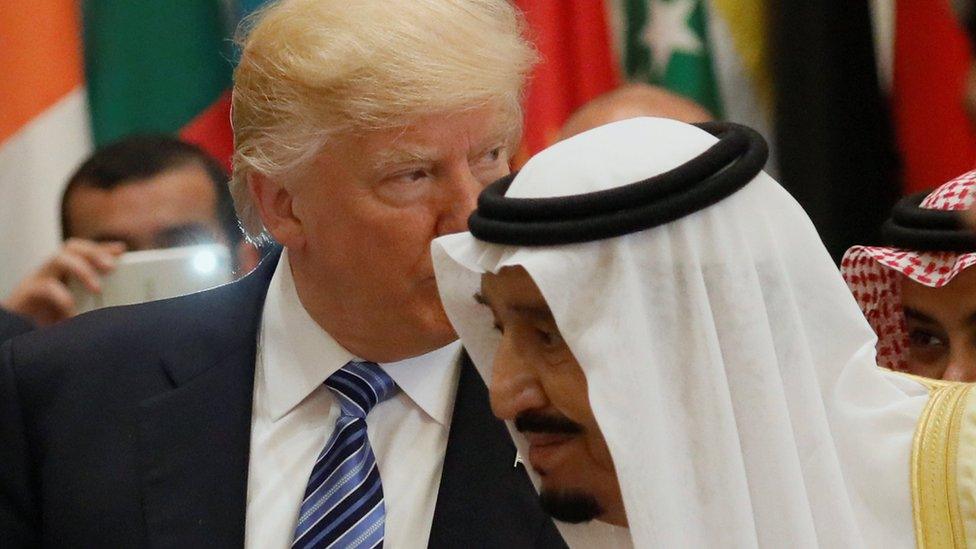
Saudi Arabia may be pleased by Mr Trump's tough language on Iran, its main rival
Indeed the re-election of Iran's President Hassan Rouhani may complicate matters further.
He was perceived as the more moderate candidate after all, even if the Supreme Leader and the Revolutionary Guard still retain a key grip on foreign policy.
President Rouhani is already encouraging some European politicians to talk of the search for an opening to Tehran. That may not go down well in Washington.
But then there is the very complexity of the region that Mr Trump's rhetoric often overlooks.
The Iraqi government is one of Washington's main allies against so-called Islamic State. But Iran too is a strong supporter of Baghdad and has deployed militia forces and advisers on the ground to aid the war effort.
Adversity really does make strange bedfellows.
- Published22 May 2017
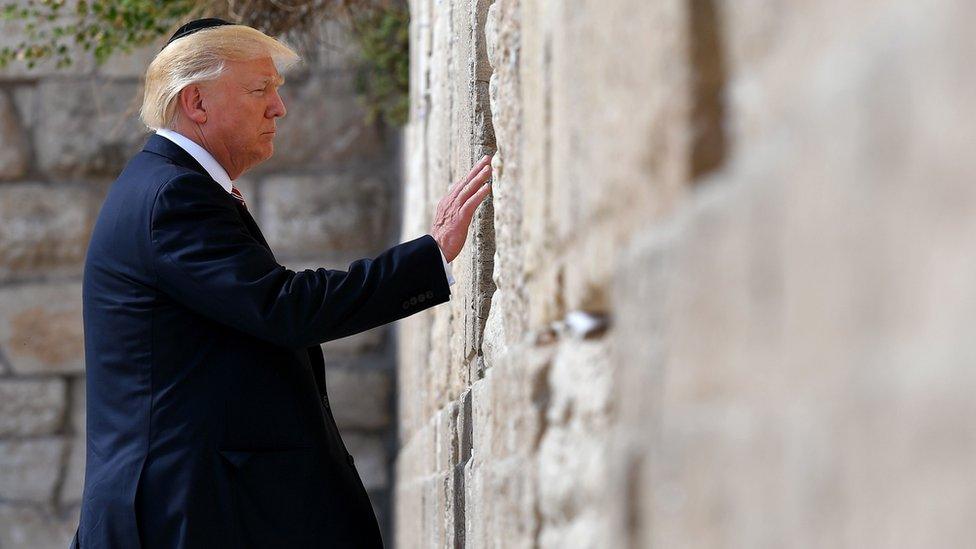
- Published22 May 2017
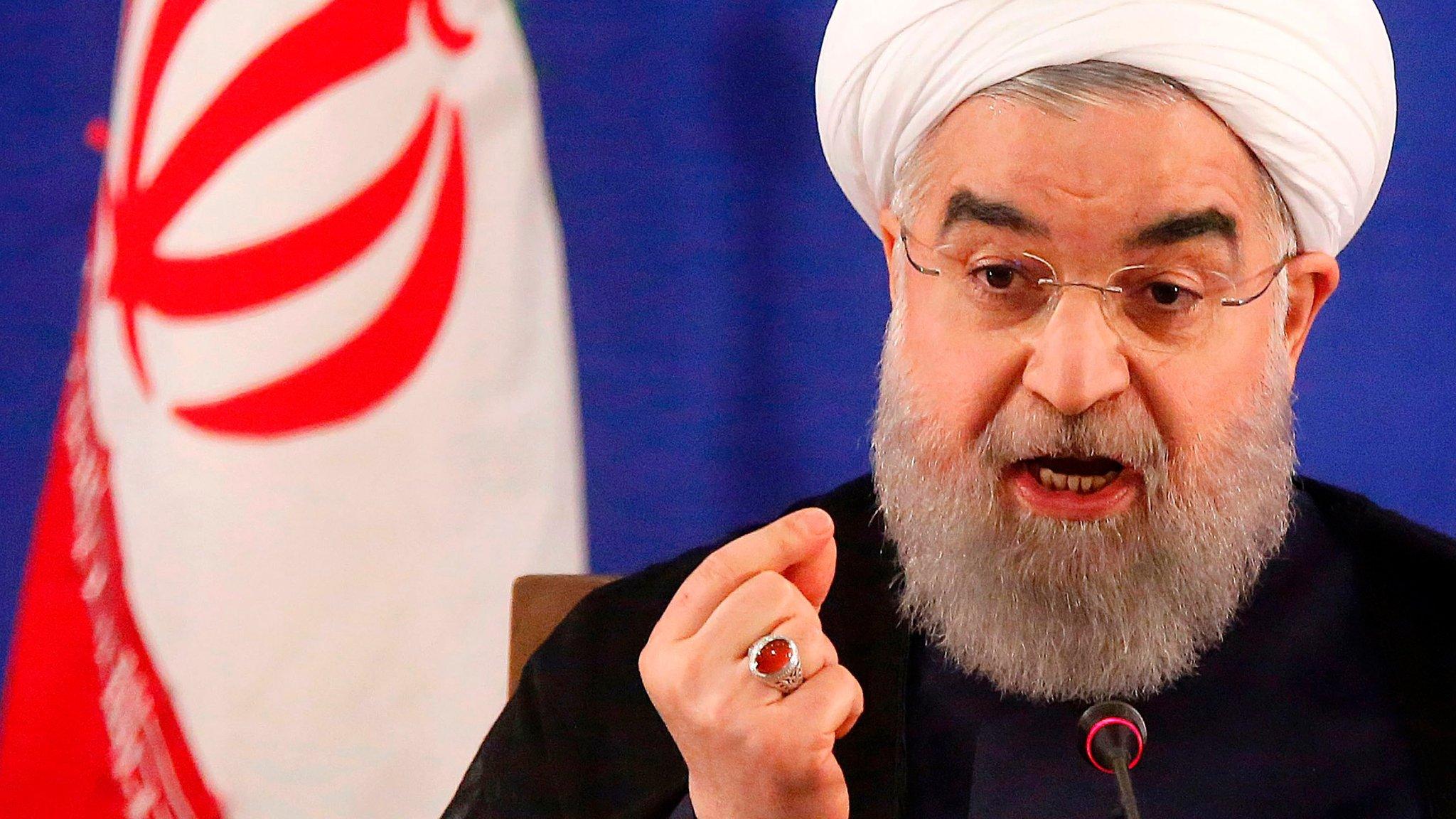
- Published22 May 2017
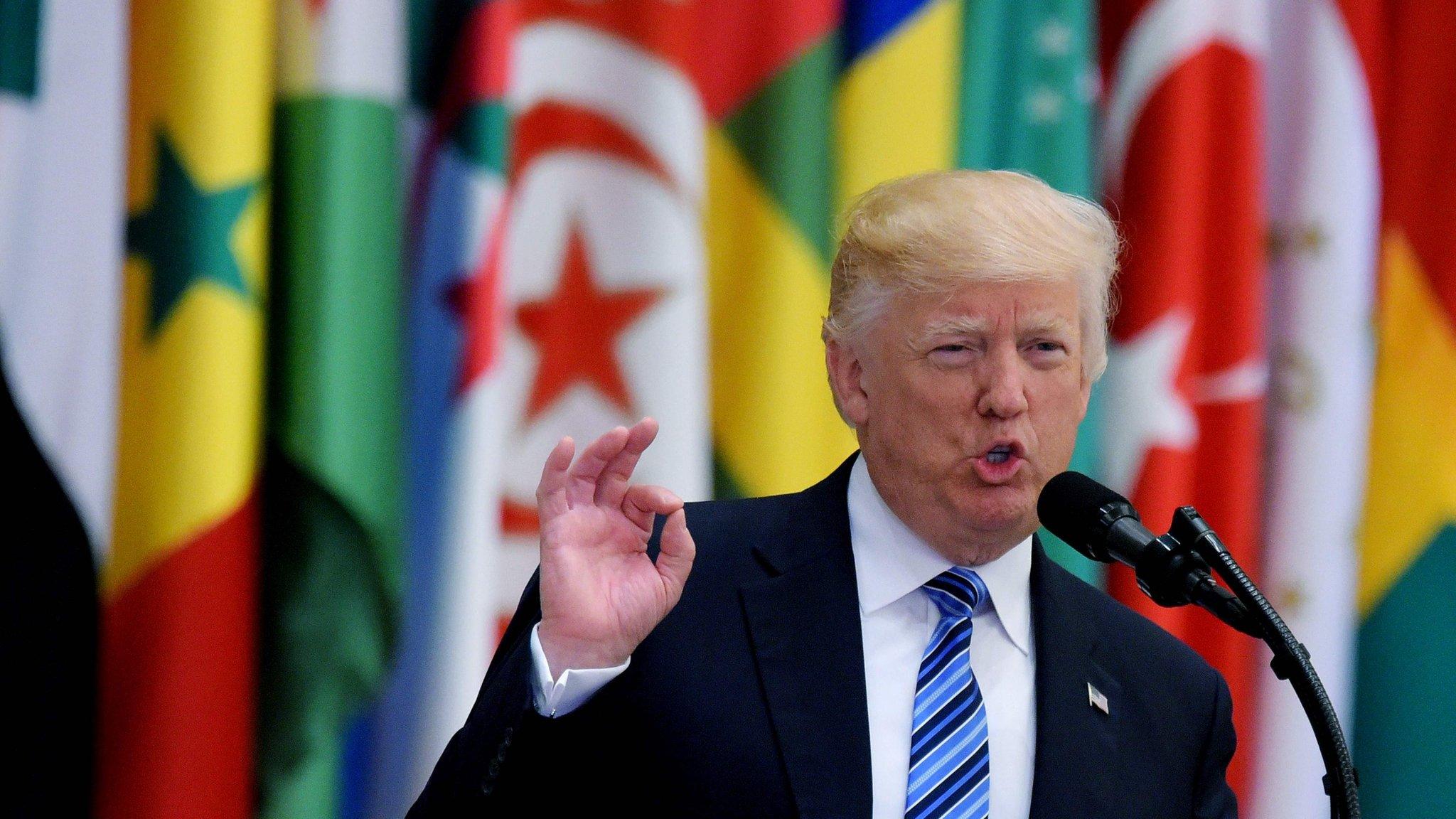
- Published20 May 2017
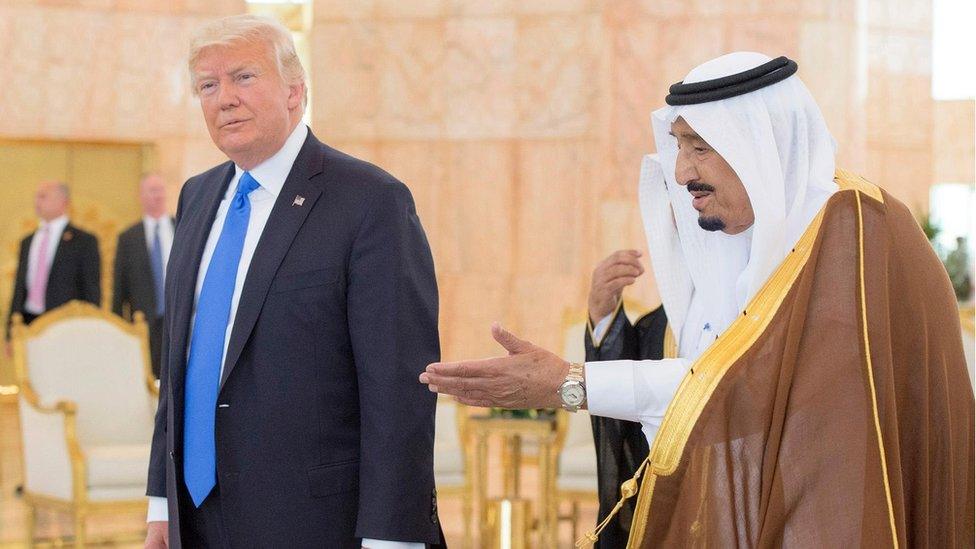
- Published21 May 2017
